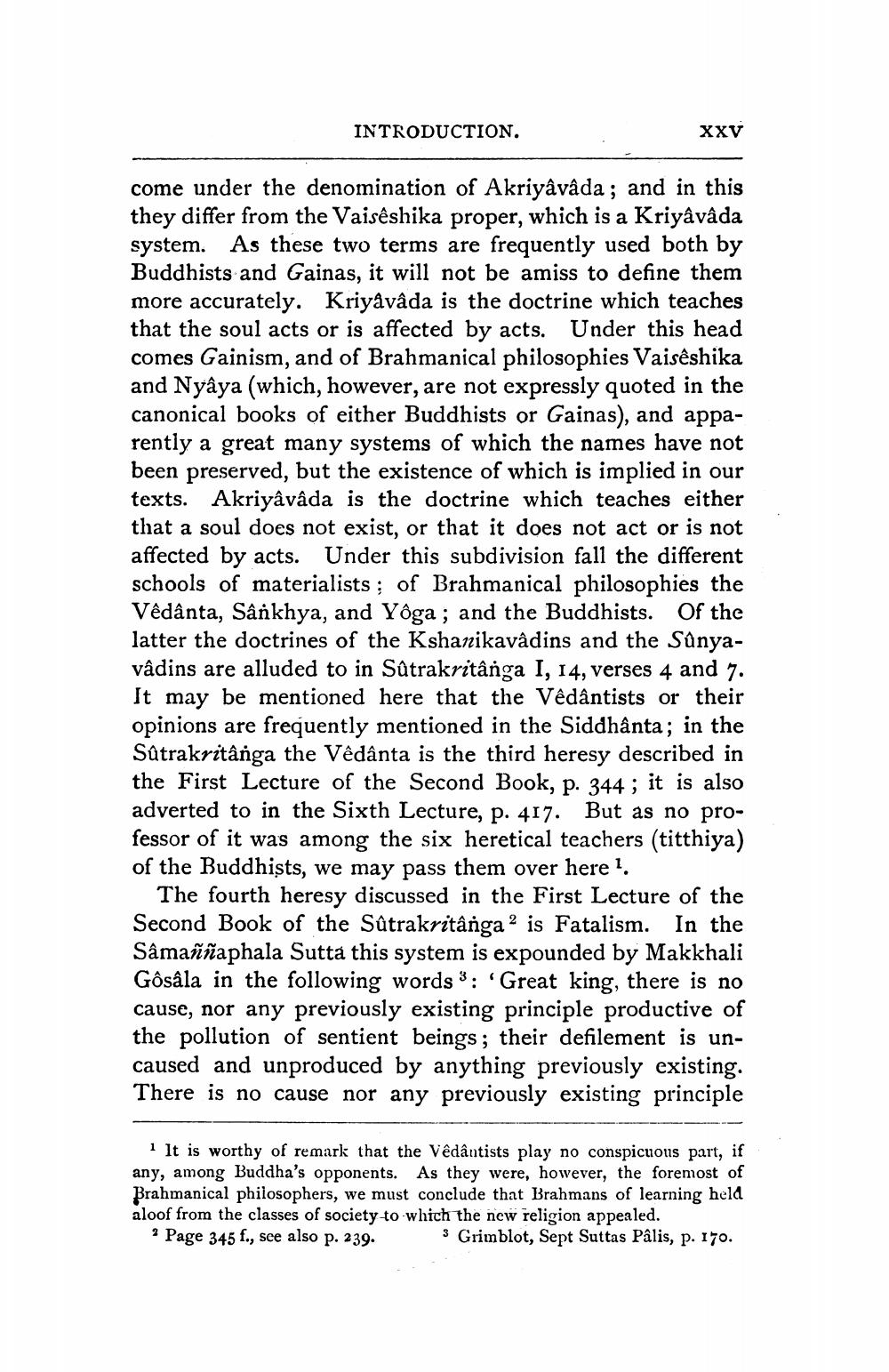________________
INTRODUCTION.
XXV
come under the denomination of Akriyâvâda; and in this they differ from the Vaisêshika proper, which is a Kriyâvâda system. As these two terms are frequently used both by Buddhists and Gainas, it will not be amiss to define them more accurately. Kriyâvâda is the doctrine which teaches that the soul acts or is affected by acts. Under this head comes Gainism, and of Brahmanical philosophies Vaisêshika and Nyâya (which, however, are not expressly quoted in the canonical books of either Buddhists or Gainas), and apparently a great many systems of which the names have not been preserved, but the existence of which is implied in our texts. Akriyâvâda is the doctrine which teaches either that a soul does not exist, or that it does not act or is not affected by acts. Under this subdivision fall the different schools of materialists ; of Brahmanical philosophies the Vêdânta, Sânkhya, and Yôga; and the Buddhists. Of the latter the doctrines of the Kshanikavâdins and the Sünyavâdins are alluded to in Sûtrakritânga I, 14, verses 4 and 7. It may be mentioned here that the Vêdântists or their opinions are frequently mentioned in the Siddhânta; in the Sûtrakritânga the Vêdânta is the third heresy described in the First Lecture of the Second Book, p. 344 ; it is also adverted to in the Sixth Lecture, p. 417. But as no professor of it was among the six heretical teachers (titthiya) of the Buddhists, we may pass them over here
The fourth heresy discussed in the First Lecture of the Second Book of the Sûtrakritânga? is Fatalism. In the Sâmaññaphala Sutta this system is expounded by Makkhali Gôsâla in the following words 3: 'Great king, there is no cause, nor any previously existing principle productive of the pollution of sentient beings; their defilement is uncaused and unproduced by anything previously existing. There is no cause nor any previously existing principle
i It is worthy of remark that the Vêdântists play no conspicuous part, if any, among Buddha's opponents. As they were, however, the foremost of Brahmanical philosophers, we must conclude that Brahmans of learning held aloof from the classes of society to which the new religion appealed.
* Page 345 f., see also p. 239. 3 Grimblot, Sept Suttas Pâlis, p. 170.




